Minette Batters has been a hard act to follow, but new NFU boss Tom Bradshaw has impressed with his steadfast battle against the family farm tax
Succeeding Minette Batters was never going to be an easy gig for Tom Bradshaw. Widely described as “the best NFU president ever”, this forceful advocate for farming became a fearsome, national figure who elevated the profile of the farming union to unparalleled heights in her four years at the helm.
Yet Bradshaw is now earning his own reputation as a formidable voice for farmers. But his agenda when elected as one of the NFU’s youngest presidents, in February 2024 was rather more grounded, at least initially.
As a “glass half-full person”, he’d set early, “optimistic” priorities around the need to bolster self-sufficiency, tackle supply chain fairness and help meet the government’s sustainability targets.
Barely six months into the role, however, he was plunged into crisis mode, when the new Labour government announced controversial changes to Inheritance Tax (IHT) liabilities for farm businesses in its maiden budget.
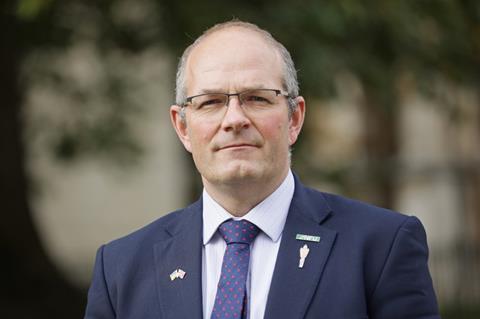
Those plans, due to come into force in April 2026, will see Agricultural Property Relief and Business Property Relief halved on businesses valued above £1m. And what quickly became known as the ‘family farm tax’ thrust Bradshaw into the national spotlight.
Thousands of farmers took to the streets of London in the first of a series of protests on the issue on 19 November. And in an emotional and heartfelt speech – something that’s become a recurring theme – Bradshaw said he’d “never seen the industry this angry, this disillusioned and this upset”, as he pledged to fight the “shameless” policy until the government relented.
Driving that emotion was also a deeply personal experience for Bradshaw. Last June, his brother Stuart died in a boating accident in Greece.
And in many respects, his tragic death “helped me have the understanding of the impact these IHT changes can have on families”, Bradshaw suggests. “He wasn’t in our farming business [being a successful businessman in his own right]. But if he had been, with that IHT burden to deal with, it would have ended us.
“So it’s been very personal, and because of my very personal understanding of the situation, at times, the raw emotion has also come through,” he admits. “But I think that’s been a good thing overall, because everything I have said on the issue has been grounded in reality rather than just being a concept of what the impact of these changes might be.”
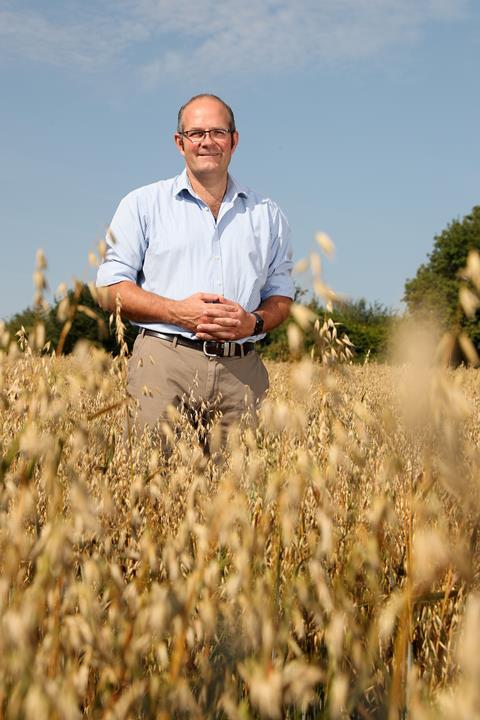
Name: Tom Bradshaw
Age: 42
Family: Lives in Fordham, Colchester, with wife and children (aged 6 and 8)
Potted CV: Inquisitive farmer who’s been lucky to travel the world through Nuffield Farming Scholarships and rapidly evolved and grew his farm from 2003-13
Career highlight: Becoming NFU president
Best advice given: Shoot for the moon – even if you miss, you’ll land among the stars
Business motto: Debt is a great motivator
Current book: No time to read
Hobbies: Running, hockey, rugby coach
Dream holiday: Skiing in North America
Favourite film: Crocodile Dundee
Favourite restaurant: Rocky Bottoms in Norfolk
Family – and how UK farming is so dependent on family farms – is clearly hugely important to Bradshaw. He’s the fourth generation of his own brood to be involved in their mixed arable farming business, which has been based in the village of Fordham in Essex since 1937, when his grandparents moved south from Lancashire in the wake of the Depression.
Bradshaw and his brother were the first in their family to attend university, and after studying agricultural business management at Wye College in Kent he secured a Nuffield Farming Scholarship in 2011 – giving him “the amazing opportunity” to travel the world, learning about farming in countries from Argentina and the US to Australia, New Zealand and Germany.
“I’d thought the UK was at the cutting edge of global agriculture. But when I came back, I thought we’d fallen behind,” he admits. “It gave me that insight into what we need to be doing over here.”
Read more:
-
British fruit & veg should be put at heart of NHS plan, growers say
-
AHDB appoints interim chief executive
-
Red Tractor: New tiered approach to pig welfare standards and labelling gets go-ahead
-
Dozens of farmers secure access to water following EA case
On returning to Britain, and still in his twenties, he took over the running of the family farm from his retiring father (who is still his “biggest supporter”) before taking his first tentative steps into the political realm. Again a family first, this came via a “tap on the shoulder” in 2014, with contemporaries urging him to apply for a position on the NFU Combinable Crops Board.
It was during a two-year stint as an appointee that he “very quickly” decided shifting to elected office was “where you can make the most difference”.
So, after running for election, he became National Crops Board chair in 2018, before winning elections as an NFU vice-president in 2019, and then after two years in that position, as Batters’ deputy in 2022.
“They always say in the NFU: You’ve got to be careful, or you’ll go far,” Bradshaw jokes. “I never really realised I was even in politics until I went through my first election.”

‘Top-drawer president’
And despite his initial reticence, he’s clearly a natural at elected office. One industry insider who knows him well describes Bradshaw as a “top-drawer president” who “scrubs up well with stakeholders”. He’s someone who “has the intellect, listens and acts on what members tell him”, regardless of their background or position.
He is “very bright, articulate, calm, reasoned and thoughtful”, adds a second industry source, while another suggests he is already “one of the great NFU presidents, in seriously challenging times”.
And that political nous, honed in the often “brutal” NFU elections process, has already served him well when dealing with ministers in Whitehall and in getting the NFU’s message across to the public.
“We never wanted to fight that IHT battle publicly – we didn’t even think it was a campaign we could take public. But we had no choice, we were forced into it,” he says.
“And what’s amazed us is we’re still seeing a lot of public support on this issue,” he adds, citing a recent poll by the NFU putting support for a u-turn on the family farm tax at 65% of the population. “So that gives us confidence that we have managed to cut through with a proportion of the public.”
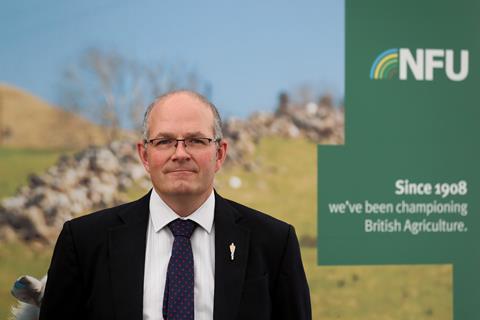
Whether that cut-through influences the government, however, remains to be seen. Bradshaw and the wider NFU make great play of their ‘apolitical’ status, and after a sometimes-rocky but ultimately productive relationship with the Tories, he’d been initially impressed by the way Labour had approached the farming sector while in opposition, particularly its oft-repeated (and now much-criticised) claim that “food security is national security”.
That all changed with the IHT reforms, he points out, while the early closure of the Sustainable Farming Incentive in April – which then had to be partially reopened in May following an administrative error involving several thousand applications – was “terribly handled”.
Nevertheless, Bradshaw has a good working relationship with environment secretary Steve Reed, he says, meeting him regularly. He has also met “several times” exchequer secretary of the Treasury James Murray – a person who has “desperately tried not to understand” the consequences of IHT reform.
Read more:
-
Welsh government’s Sustainable Farming Scheme still concerning farmers
-
NFU warned government of CO2 gas supply vulnerability in February: Tom Bradshaw
-
Changes to seasonal labour model ‘would cost industry £43m per year’
-
NFU calls for ‘no more concessions’ with US on trade
Murray’s stonewalling style on this issue has infuriated farmers, but “one day, I genuinely believe I did get through to him”, Bradshaw says.
“I don’t believe he can say he doesn’t understand the impacts, but that now makes it more difficult for me, because if he’s not willing to protect the people caught in the eye of the storm, it makes it much more personal.”
Added to that, Murray’s boss, beleaguered Chancellor Rachel Reeves, has so far avoided repeated calls to meet with Bradshaw and hear him out. That means there’s been no engagement from the Treasury on any of the solutions to the IHT crisis the NFU has put forward, such as a “clawback” proposal, where the full 40% tax would be paid, but only if sold by a family successor within seven years of the owner’s death.
More pressure on government will be imminent “if they don’t try and remove the elderly from the eye of this storm”, Bradshaw points out.
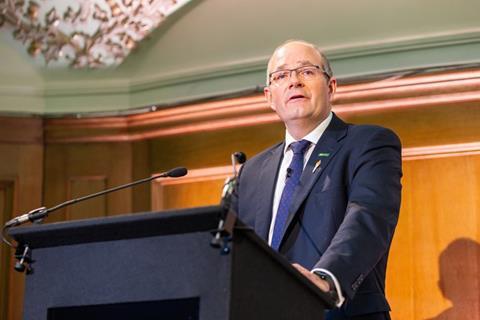
And in the face of a series of recent backbench revolts by Labour MPs, Bradshaw insists “they will have to evolve the policy” somehow.
“There are more and more backbenchers getting in contact with me to share their frustrations,” he says. “They believe we put forward a very credible solution with the clawback model and are frustrated the government said no and didn’t publish their reasoning behind it.”
The NFU “purposely” ratcheted down its campaign to give space to MPs to lobby Reeves on the issue, he adds, and they “could have found a way out” months ago. “We’ve offered them the money in our alternative proposal,” he stresses. “I just don’t know why they can’t take that.”
All eyes will now be on the Treasury ahead of the next budget this autumn – and whether parliamentary pressure will force a change of course by Reeves.
But if she thinks Bradshaw and the NFU will relent, it’s clear he’s not going anywhere and is already planning on running for a second term next February.
“I’m really lucky that I enjoy it,” he says. “Yes, there’s a lot of pressure, and there are days when I wouldn’t be human if that didn’t weigh heavy on me. But, generally, I love what I do – I only do this to try and create opportunities for the industry, for the future. That’s my driving force, and it feels like we’ve only just started.”







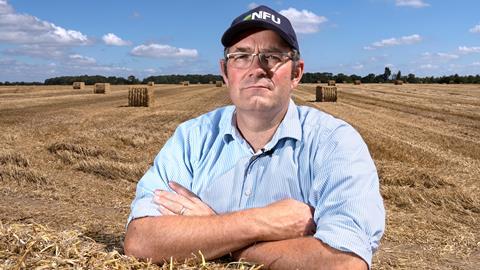
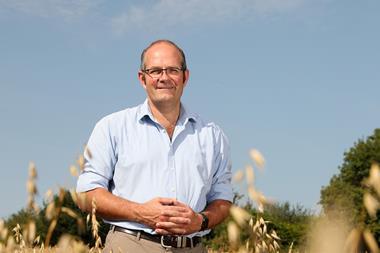

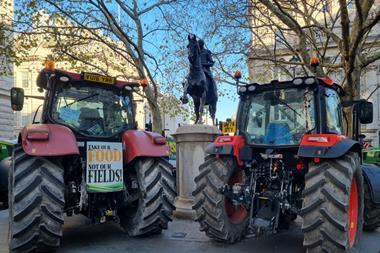
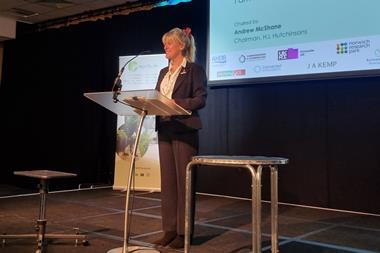
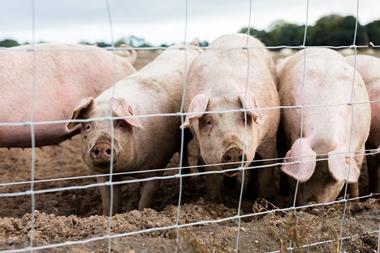
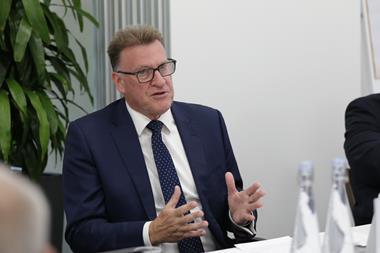


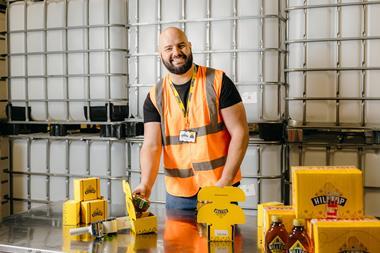
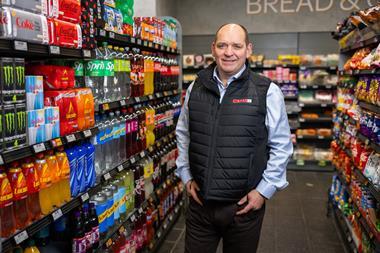

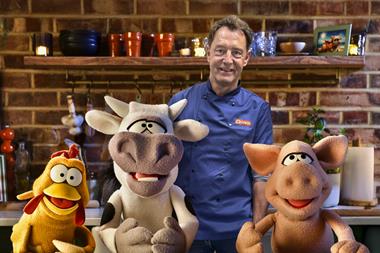
No comments yet